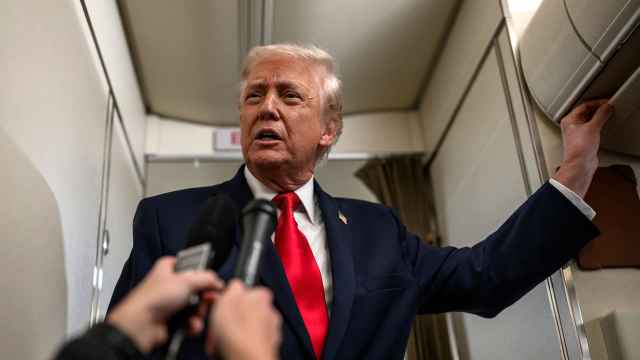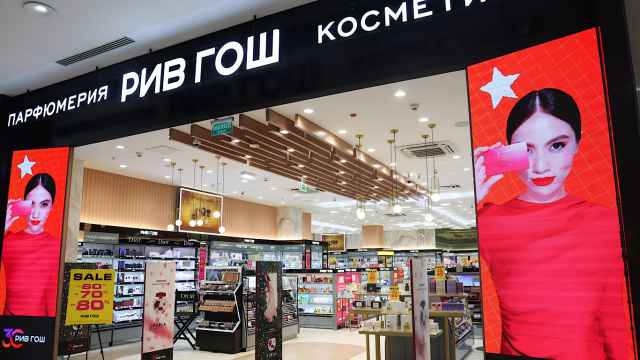LONDON — A $2 trillion economy, a seat at the table with top world powers and a stock market that trades at valuations cheaper than Pakistan, yet G20 host Russia is still struggling to gain the trust of international capital.
Despite years of reform pledges, several privatizations and an apparent uptick in the global growth outlook, Russian shares trade only around five times expected earnings for the coming year, approaching depths plumbed during the 2008 market crash.
That's less than half the average for emerging-market peers, many of whom Russia is hosting this week at the Group of 20 nations meeting in Moscow.
Given that the G20 chair is charged with forging consensus on economic governance among the world's leading economies, there is an irony in it being one of the least trusted investment destinations of its peers, at least as reflected by prices and demand.
Even if one accounts for the commodity firms that make up most of the index and generally trade at a discount to retailers and banks, valuations are well below Russia's own past average.
Most will attribute this, with some justification, to Moscow's past record of expropriations, weak corporate governance and the Kremlin's heavy-handed involvement in the economy.
All this has been driving tens of billion dollars in capital to flee from Russia every year.
But investors also point to prosaic factors such as the lack of a domestic capital base, which leaves markets exposed to the vagaries of global risk appetite. Russia is also overreliant on oil, which provides over half of budget revenues.
As a result, those betting on valuation reratings for returns have had their hopes dashed year after year.
"People who have been watching Russia for a long time are feeling a real sense of frustration," said Jose Morales, chief investment officer of Mirae Asset Global Investments in New York.
"Some people point to the valuation discount as a reason to buy, but that is a structural discount that will not disappear until we see some really significant progress on reforms."
Fund managers such as Morales do acknowledge improvements, above all this month's move to ease foreigners' access to domestic bond markets, which Barclays estimates could lead to $40 billion in capital inflows in 2013 and 2014.
But any faith in the Kremlin's reform pledges suffered a blow last year when state-run Rosneft took over oil firm TNK-BP, grabbing control over 40 percent of Russian oil output.
The oil sector's consolidation around Rosneft was a clear sign that Russia retains its proclivity for state intervention, said John-Paul Smith, head of emerging equity strategy at Deutsche Bank.
The risk image has driven up Russia's implied equity-risk premium — in other words, the spread investors demand to hold stocks over government bonds — to a near record high.
"The general view still seems to be that you don't own your shares in Russia, you only rent them," Smith said.
Still, the market got off to a good start this year, performing better than fellow leading emerging markets as the U.S. and Chinese recoveries gather pace, supporting oil prices.
And Bank of America/Merrill Lynch's monthly survey shows Russia is fund managers' favorite play these days after China, with over 40 percent overweight.
But very few of these investments are backed by conviction.
"We view Russia as a tactical market that we increase exposure to when risk appetite and oil prices are going up," said Morales, who is currently overweight Russia. "It's really from that perspective alone."
Foreign holdings are moreover skewed to the consumer sector, seeing it as a proxy for Russia's oil wealth without the risk of owning oil shares.
That has created a lopsided market where retailers, banks and telecommunications companies often trade at double or even quadruple the valuation of oils and metals peers.
Russia will be the world's fourth-biggest consumer market by 2020, doubling its annual value to $3 billion, or a tenth of total developing world consumption, a Sberbank report predicts.
But despite the apparent potential, these stocks trade 25 to 40 percent below comparable sectors in other BRIC countries, Sberbank says, a consequence of the Russia risk premium.
Ed Conroy, at HSBC Global Asset Management, is one of the few fund managers who retains a long-term bullish bias on Russia.
Russian valuations will inevitably rerate as privatizations take off and more nonoil companies list, Conroy said.
"With privatization, you are looking at companies such as rail freight operators and airlines coming to market." Conroy said. "That will dilute the commodity component of the Russian index and bring it down from the current two-thirds of the index."
Related articles:
A Message from The Moscow Times:
Dear readers,
We are facing unprecedented challenges. Russia's Prosecutor General's Office has designated The Moscow Times as an "undesirable" organization, criminalizing our work and putting our staff at risk of prosecution. This follows our earlier unjust labeling as a "foreign agent."
These actions are direct attempts to silence independent journalism in Russia. The authorities claim our work "discredits the decisions of the Russian leadership." We see things differently: we strive to provide accurate, unbiased reporting on Russia.
We, the journalists of The Moscow Times, refuse to be silenced. But to continue our work, we need your help.
Your support, no matter how small, makes a world of difference. If you can, please support us monthly starting from just $2. It's quick to set up, and every contribution makes a significant impact.
By supporting The Moscow Times, you're defending open, independent journalism in the face of repression. Thank you for standing with us.
Remind me later.





